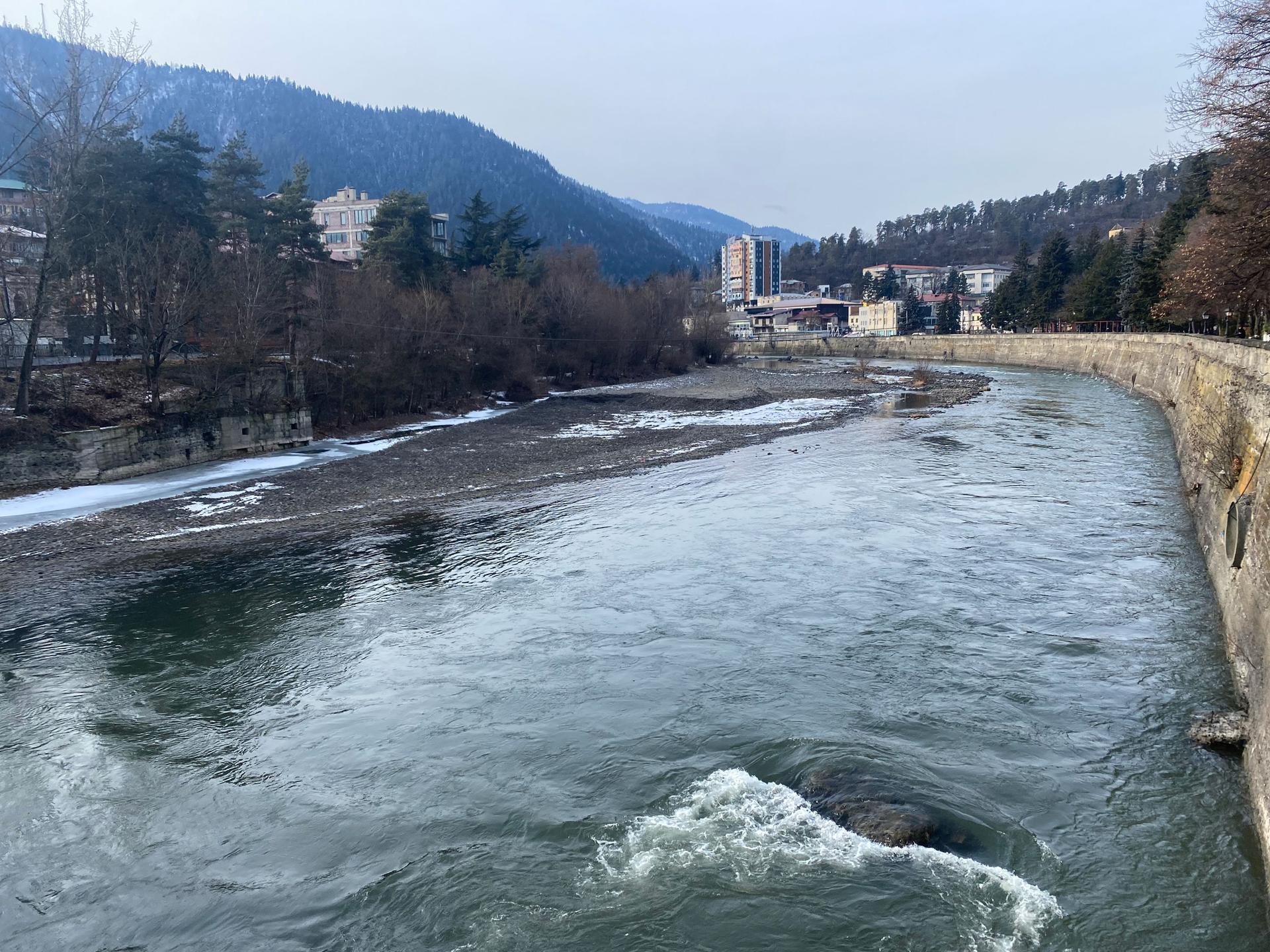When Tiko Tuskadze was a little girl growing up in Georgia, her family used to take her on holiday every year to Borjomi, a popular vacation town in the center of the country.
Borjomi, nestled between steep foothills alongside a wide, curvy river, became famous throughout the far reaches of the former Soviet Union for its mineral springs.
“I still remember the taste, it was like having a lemon,” said Tuskadze, who now runs two Georgian restaurants in London and penned the Georgian cookbook, “Supra.”
The naturally carbonated water gives off a sulfur scent with a distinctive flavor.
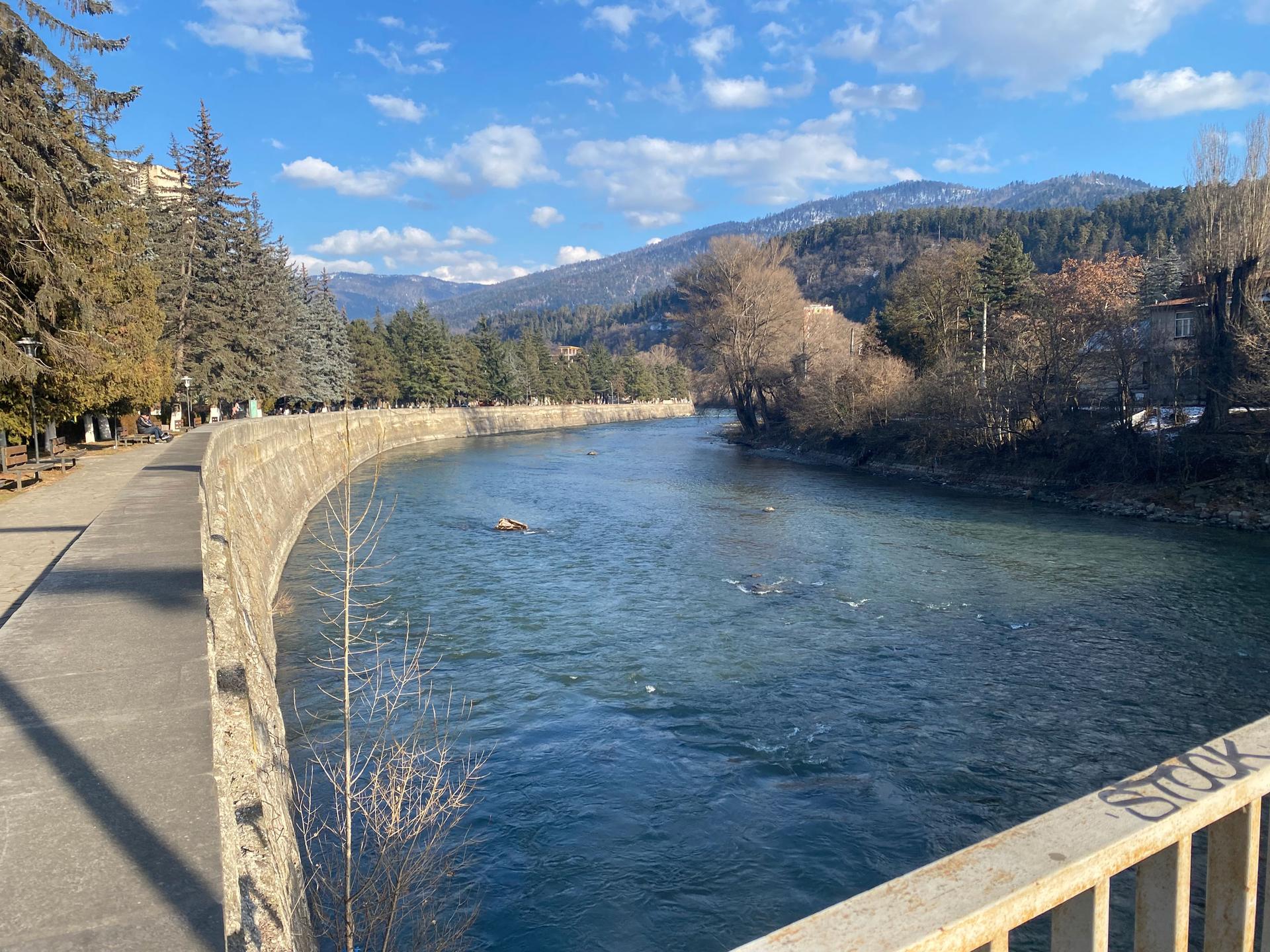
Love it or hate it, Borjomi water is here to stay.
But the company that bottles and sells the city’s water has run into some major problems since Russia invaded Ukraine, one of Borjomi’s biggest foreign markets. Sales dropped significantly after the war started due to logistics problems — and sanctions targeting some of its key shareholders.
“Last year was a bad year for the company,” said Levan Bagdavadze, president of IDS Borjomi Georgia, the company that manages production and sales of Borjomi.
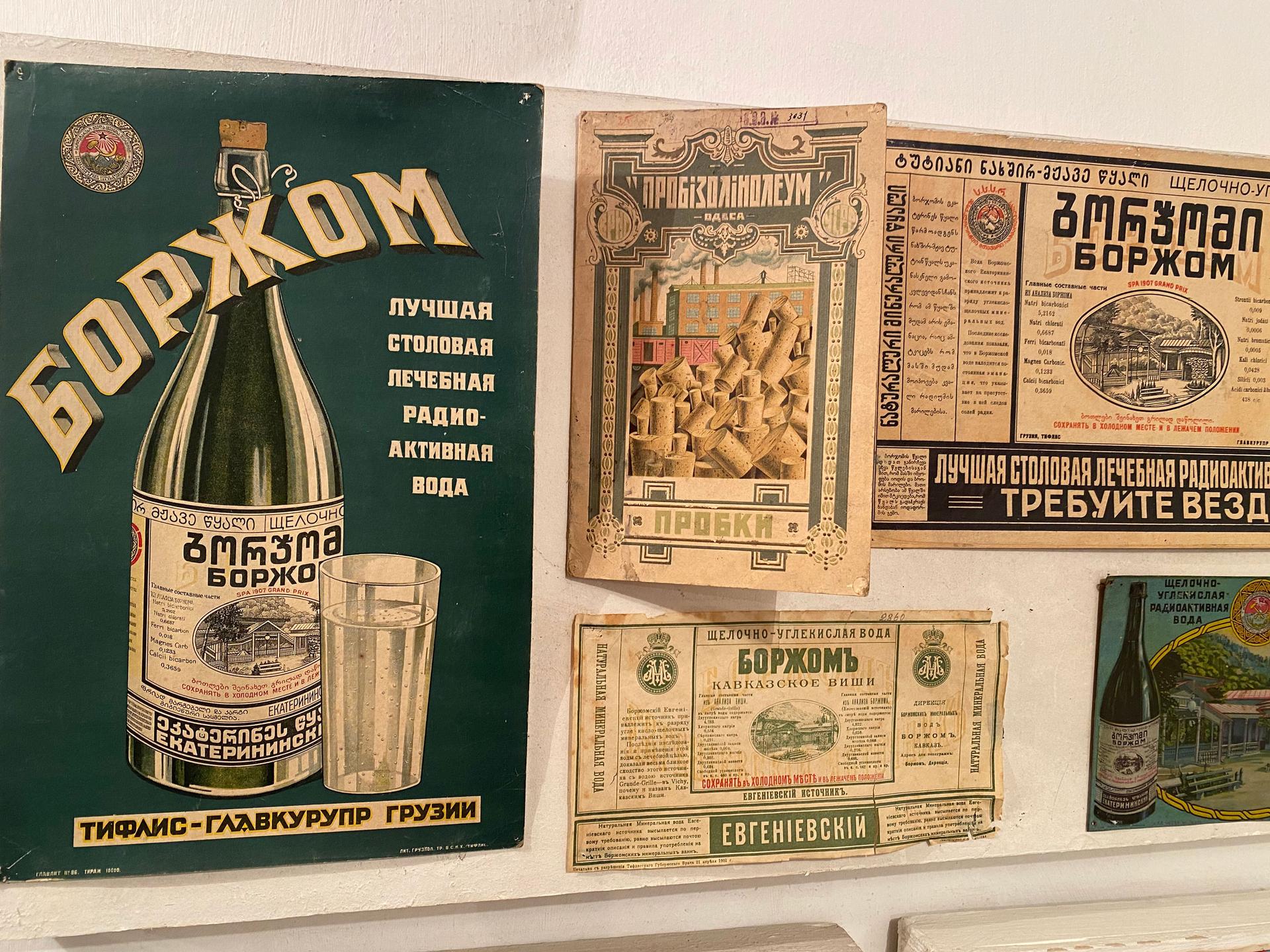
The company formerly transported Borjomi from Georgia by ferry to parts of Ukraine and elsewhere in Europe across the Black Sea, but transiting the ocean south of Ukraine became far more dangerous due to the war.
The company started shipping the water overland through Turkey by truck, which proved far more expensive.
To make matters worse, a Russian Israeli oligarch based in Britain named Mihail Fridman, who owned a majority stake in the Borjomi company, along with partners from Russia’s Alfa Bank, were sanctioned by the European Union and the United Kingdom.
Borjomi then had problems doing business with some of the Baltic countries because the company could not receive bank transactions from them.
“There was some rejection with the transactions,” Bagdavadze said.
During the chaos, the company temporarily suspended production at its bottling plant in Borjomi. And some workers went on strike because they were paid lower wages during the time production stopped, according to news reports.
In an attempt to solve Borjomi’s problems linked to sanctions, Fridman’s investment group handed over some of their Borjomi shares to the Georgian government, so the majority of the company would be owned by Georgians, not Russians.
Bagdavadze said sanctions are not a problem for the company anymore, and the issues with striking workers have been resolved.
The bottling factory is back up and running. And multiple business owners in the Baltic States as well as other parts of the EU confirmed to The World over the phone that they now have no problems buying Borjomi.
Missing from the table
Georgians are used to having the refreshing beverage at most meals — but the beloved drink has been much harder to find lately on the market.
“There was no way you opened the fridge and there was no cold Borjomi in there,” Tuskadze said, reflecting on her childhood experiences in Georgia.
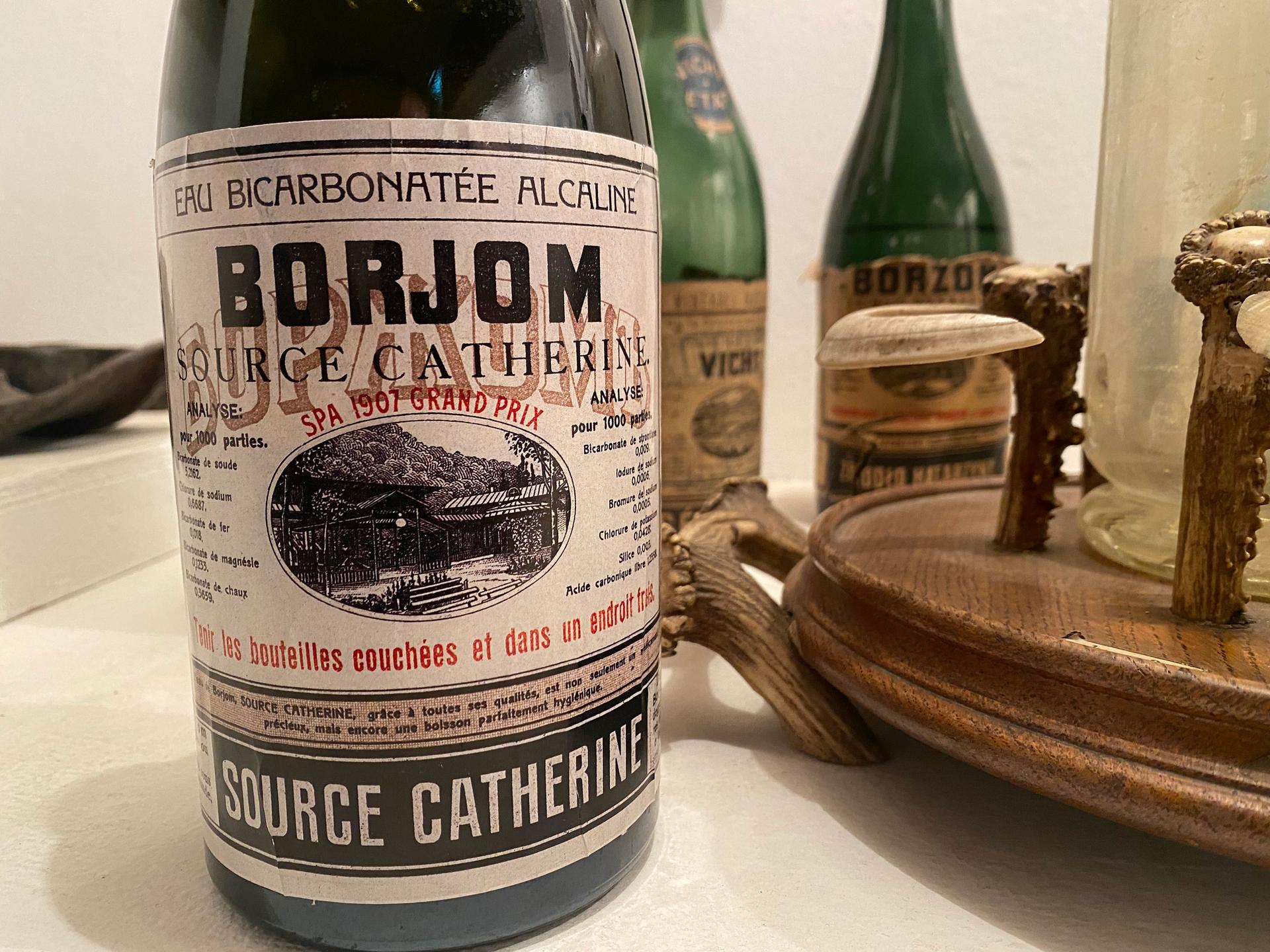
After the first water bottling factory opened in Georgia in 1854, the drink became an essential part of Georgian cuisine.
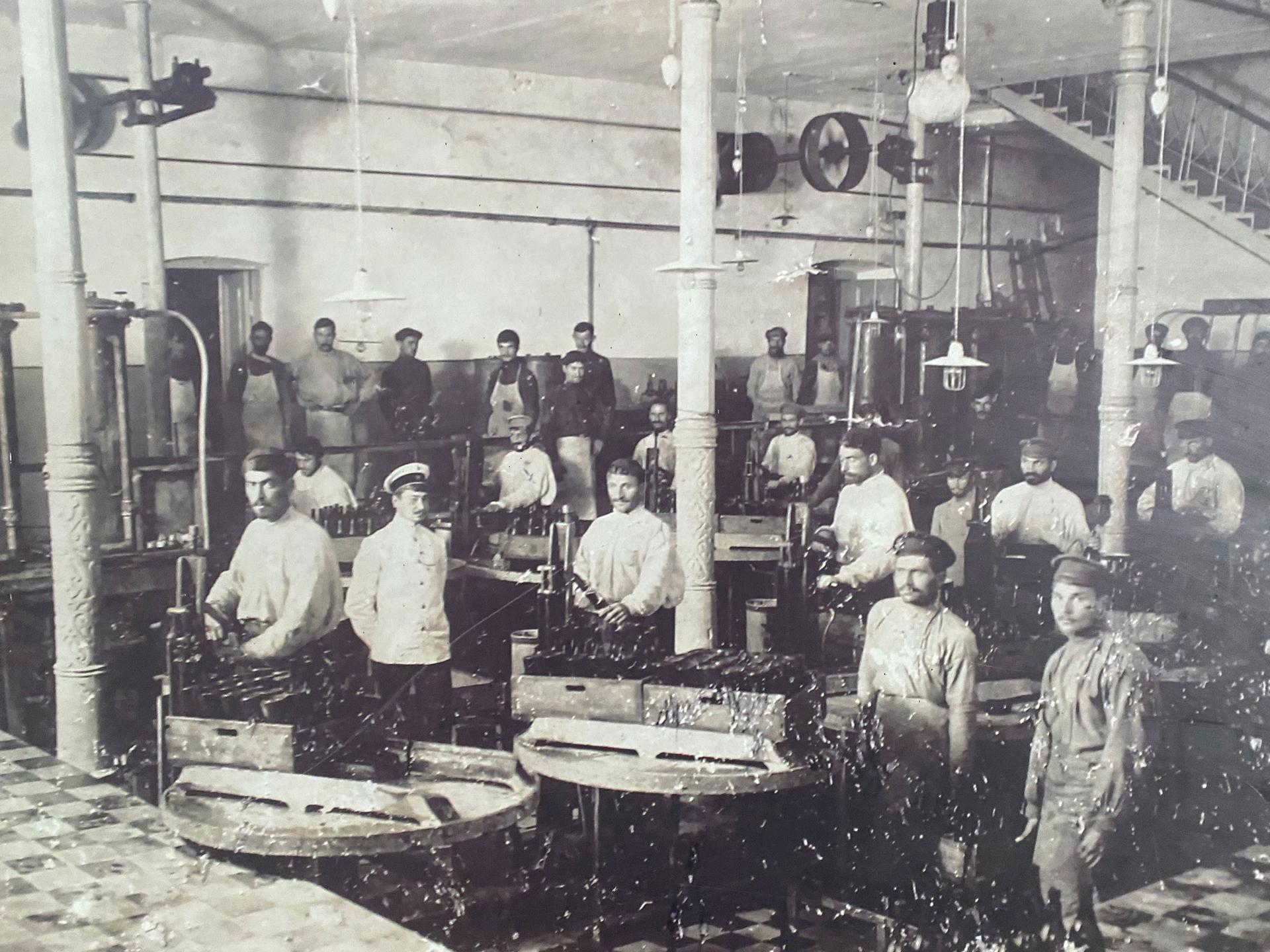
On trips to Borjomi as a child, Tuskadze said her grandmother always insisted that they visit the town’s fountain to sample the water each day. And she scolded Tuskadze when her face showed an obvious distaste for it.
But Tuskadze said she developed a taste for Borjomi as an adult and it now plays an essential role in her work as a chef. She said her grandmother even used to substitute baking soda with the fizzy water while cooking.
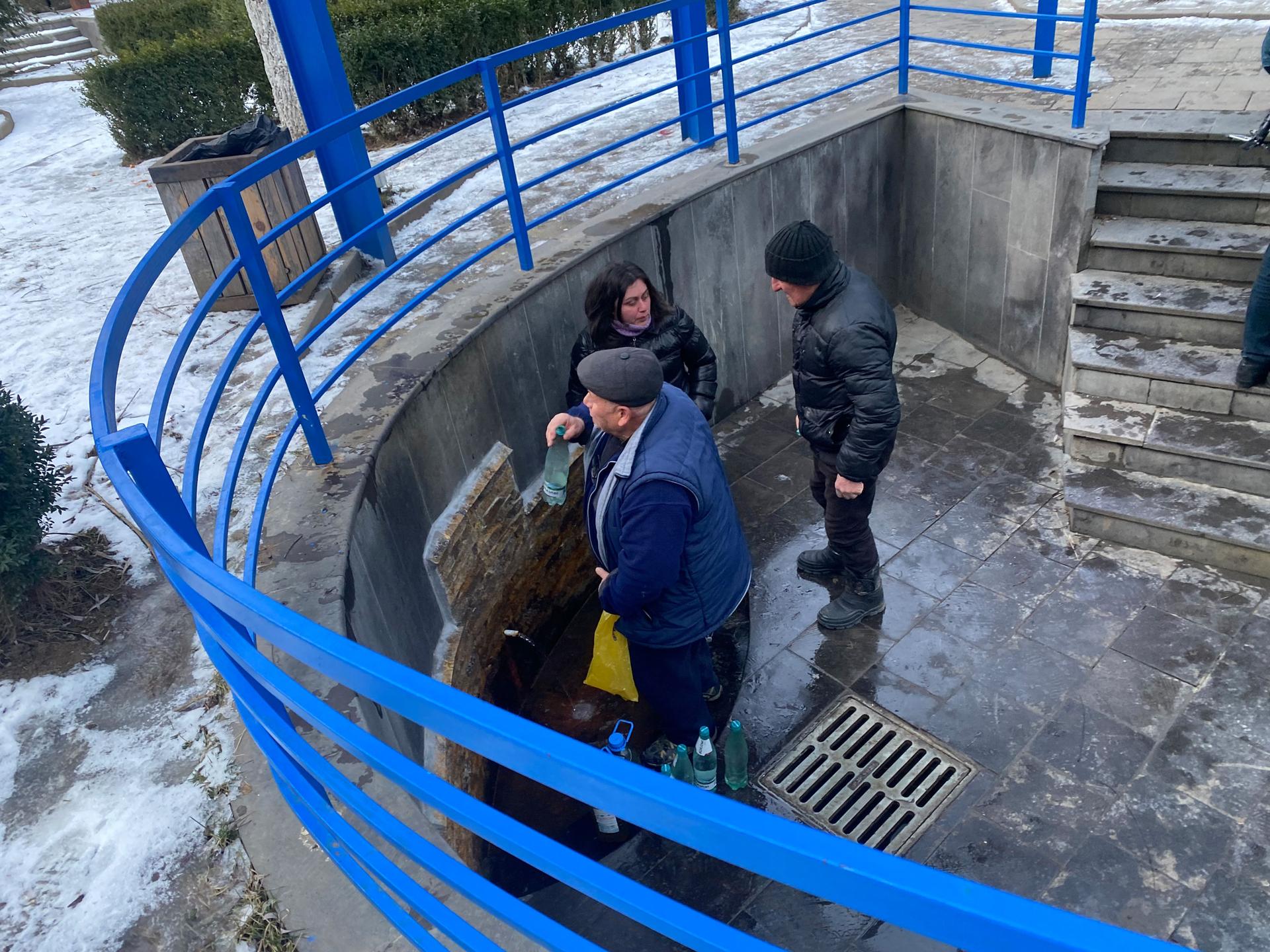
The water has become such an important part of Georgian cuisine, she said, that it’s now a key player on the table for a Georgian feast, known as a supra.
Tuskadze said she still can not purchase enough Borjomi wholesale to stock the Georgian restaurants she runs in London.
“It’s really upsetting. It’s like if somebody goes to a pizza place and, ‘Oh, sorry, we are not able to serve you pizza today,’” Tuskadze said.
Healing waters
Beyond its position as a cultural mainstay, there is a deeper reason why Borjomi’s popularity has withstood the test of time — its power to heal.
The mineral springs first gained notoriety when a group of soldiers from the Russian imperial army stumbled upon them back in the 19th century.
Mineral springs throughout Georgia have long been renowned for their health benefits and word quickly spread about the potential of the Borjomi springs.
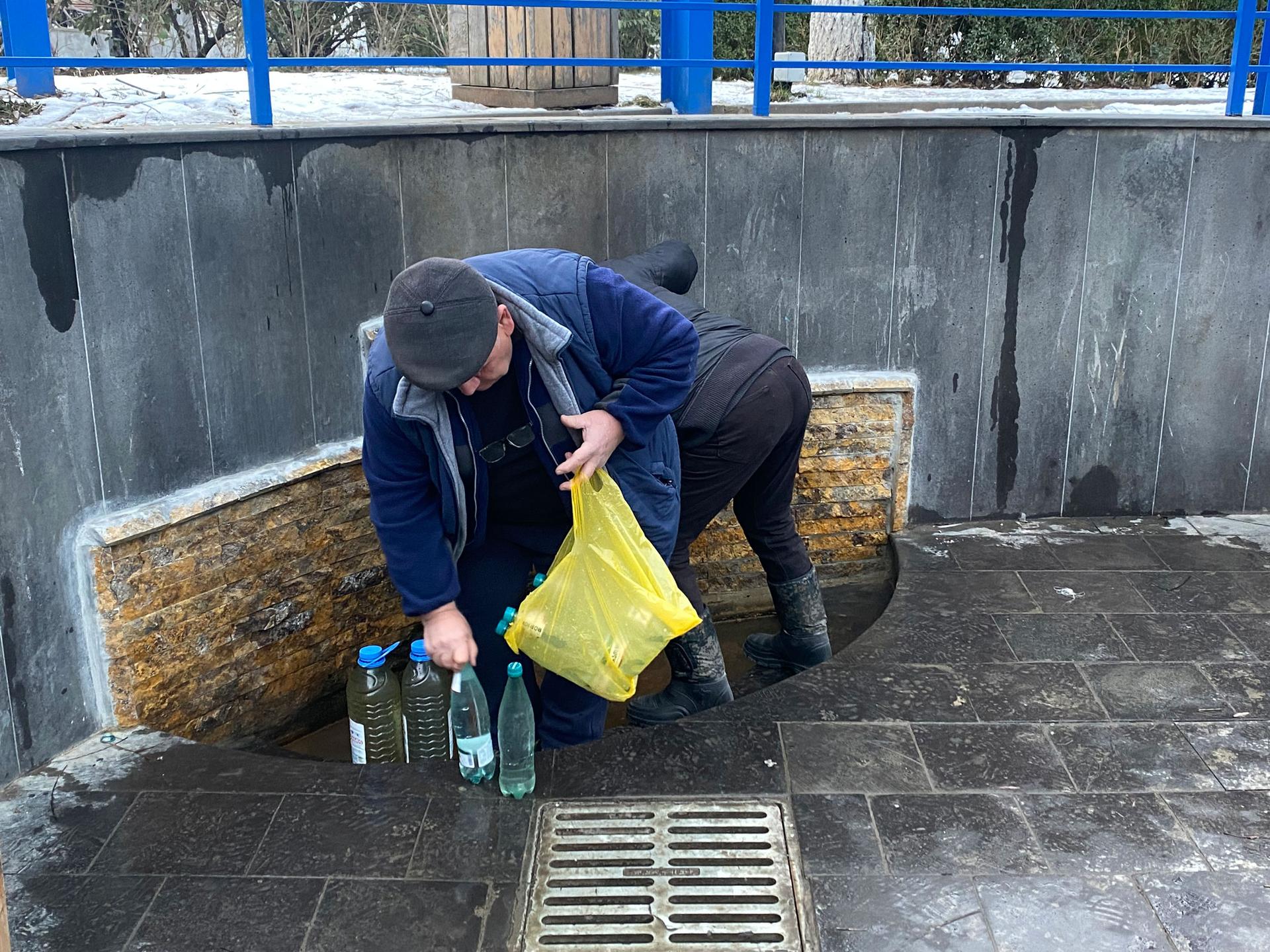
Not long after their discovery, according to local legend and a statement from the company that produces Borjomi, the Viceroy of the Russia Tsar Yevgeni Golovin in the Caucasustraveled to Borjomi with his sick daughter so she could cure an ongoing stomach issue.
“If you’re bloated, or have gas or are feeling sick to your stomach, this water will cure what ails you,” said Irina Shevchenko, a retired hydrogeologist who sells bottles of pomegranate wine to tourists near the public fountain in Borjomi.
Locals often line up with empty jugs by the fountain, where anyone can sample the famous water for free.
“The water is really good for a hangover,” Borjomi employee Ketevan Kochladze said.
The multipurpose elixir has endured in a culture that may have a tendency to overimbibe at times.
After all, there are few drinks in the world that hold such an important place at the dinner table — both during and after a party.
Our coverage reaches millions each week, but only a small fraction of listeners contribute to sustain our program. We still need 224 more people to donate $100 or $10/monthly to unlock our $67,000 match. Will you help us get there today?
